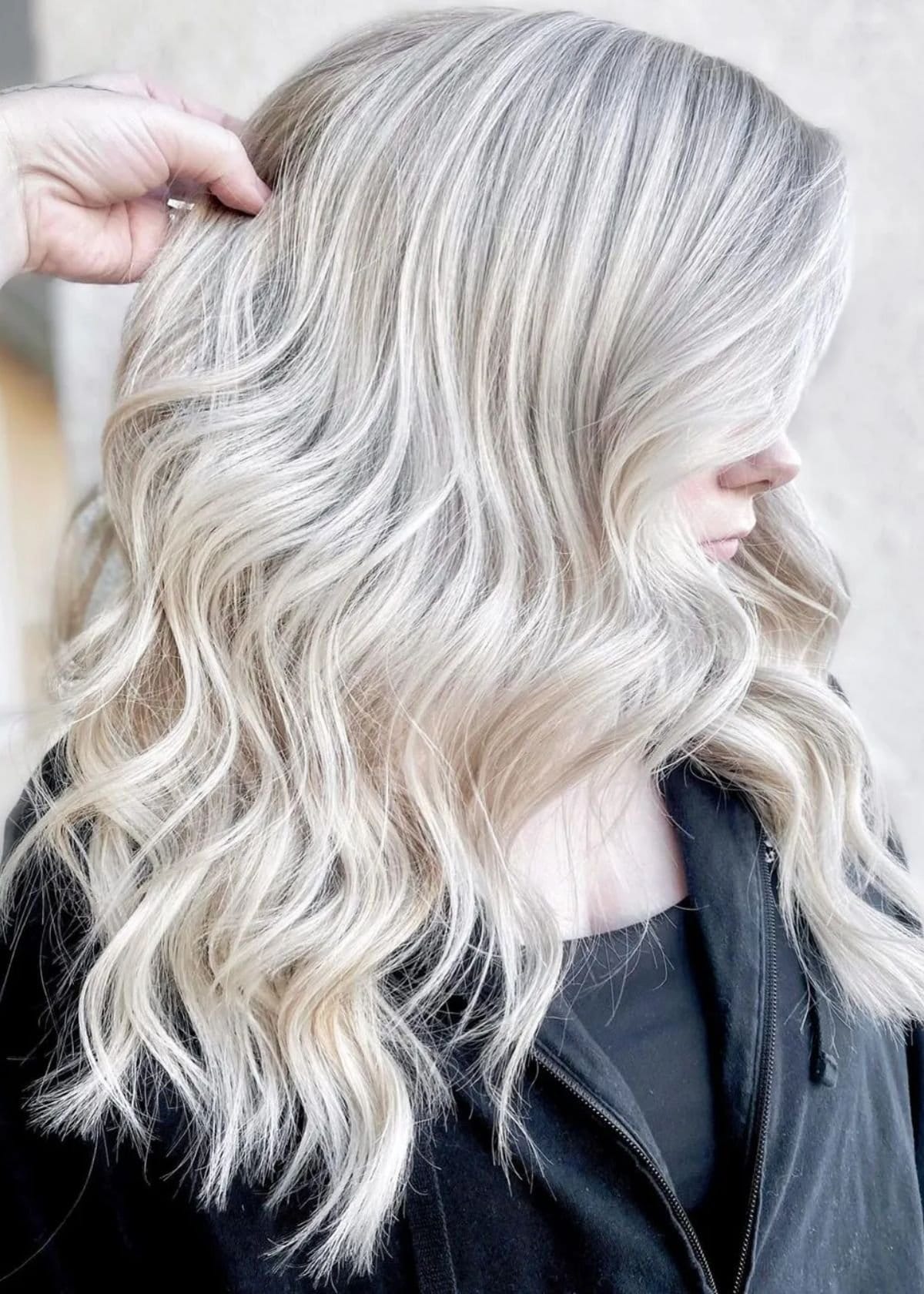Hair toner might sound like a magical solution for achieving the perfect shade, but some worry it could cause their hair to fall out. Let's get straight to the facts: hair toner is a product used after coloring to refine and enhance the hue of your hair.
It works by adjusting the tone of lightened hair, not by changing its actual color. People use toners to remove brassy tones and achieve a more natural or cooler shade.
Plus, since toners are designed to fade with each shampoo session rather than penetrate deeply into your hair shafts, using them cautiously poses minimal risk of causing blonde hair to fall out.
Some folks find themselves dealing with dryness or breakage if they process their hair too much with toner—but don’t confuse broken strands with losing hair follicles from the roots. To keep your mane looking marvelous after adding in those subtle orange tones or ash highlights, rinse well and treat your tresses right afterward.
Research shows that as long as you're using that bottle of toner wisely—choosing formulas suited for your specific type of sensitized stands and limiting how often you tone—you shouldn't see significant damage or loss of locks.
Ready? Let’s take a look at does toner damage hair.
- Hair toner does not cause hair to fall out when used correctly. It works by altering the undertone of your locks without changing the base color.
- Using a 20-volume developer with toner and limiting application time to no more than 20 minutes can help avoid hair damage.
- Toner should be applied sparingly, with enough time between sessions to let your hair cuticles recover, preventing over-processing and breakage.
- Professional toners often contain conditioning agents that promote overall hair health while achieving desired color results.
- Ammonia-free toners are gentler on the hair, making them a safer choice for maintaining healthy strands during the coloring process.
- Hair toner damage is not permanent and can be avoided. Make sure to use a hair mask for your naturally blonde hair.
Potential Damage to Hair from Toner
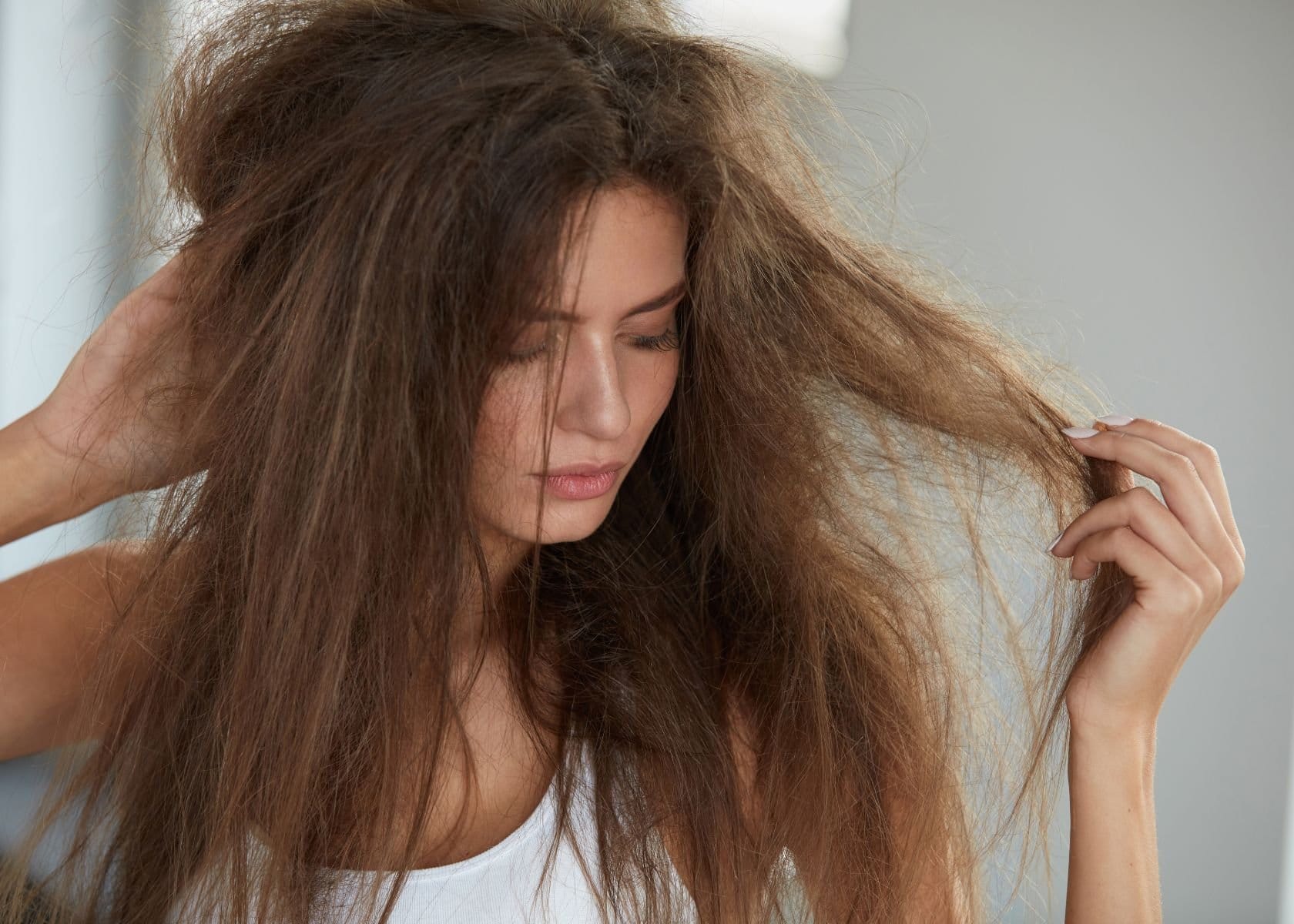
Hair toner has the potential to damage your hair, especially if it is overused or applied incorrectly. It's important to understand the risks and take steps to minimize damage when using hair toner.
Can Toner Damage Your Hair?
The toner itself will not cause significant damage to your hair when used correctly. However, using toner on sensitized hair or applying it too frequently can lead to damage, including dryness and breakage.
It's important to follow the recommended application time and use the correct developer to prevent potential harm to your hair from toner. Additionally, ensure thorough rinsing and post-toning care routine for healthy-looking hair.
Understanding how toner works and its potential impact on hair health is essential for achieving desired results without causing unnecessary damage. Let's delve into the effects of toner on different types of hair.
Is Toner Less Damaging than Hair Dye?
Toner is generally less damaging than hair dye when used correctly. Unlike permanent dyes, toners don't penetrate the hair shaft but work on the outer layers of the hair to alter its tone.
Properly applied toner can help achieve the desired color without causing significant damage to the hair structure. However, it's essential to choose a toner that is suitable for your specific needs and avoid over-processing, as improper use can lead to dryness and breakage.
It's important to note that while toner is milder than most permanent dyes, using it excessively or with high-volume developers can still cause damage. When considering whether toner is less damaging than hair dye, proper application techniques and following recommended guidelines are crucial in minimizing potential harm.
Understanding how each product interacts with your unique hair type will help you make informed decisions about coloring treatments.
Discovering effective ways to minimize potential damage when using both toners and dyes begins with understanding how these products interact with the natural state of your hair.
Tips to Minimize Toner Hair Damage
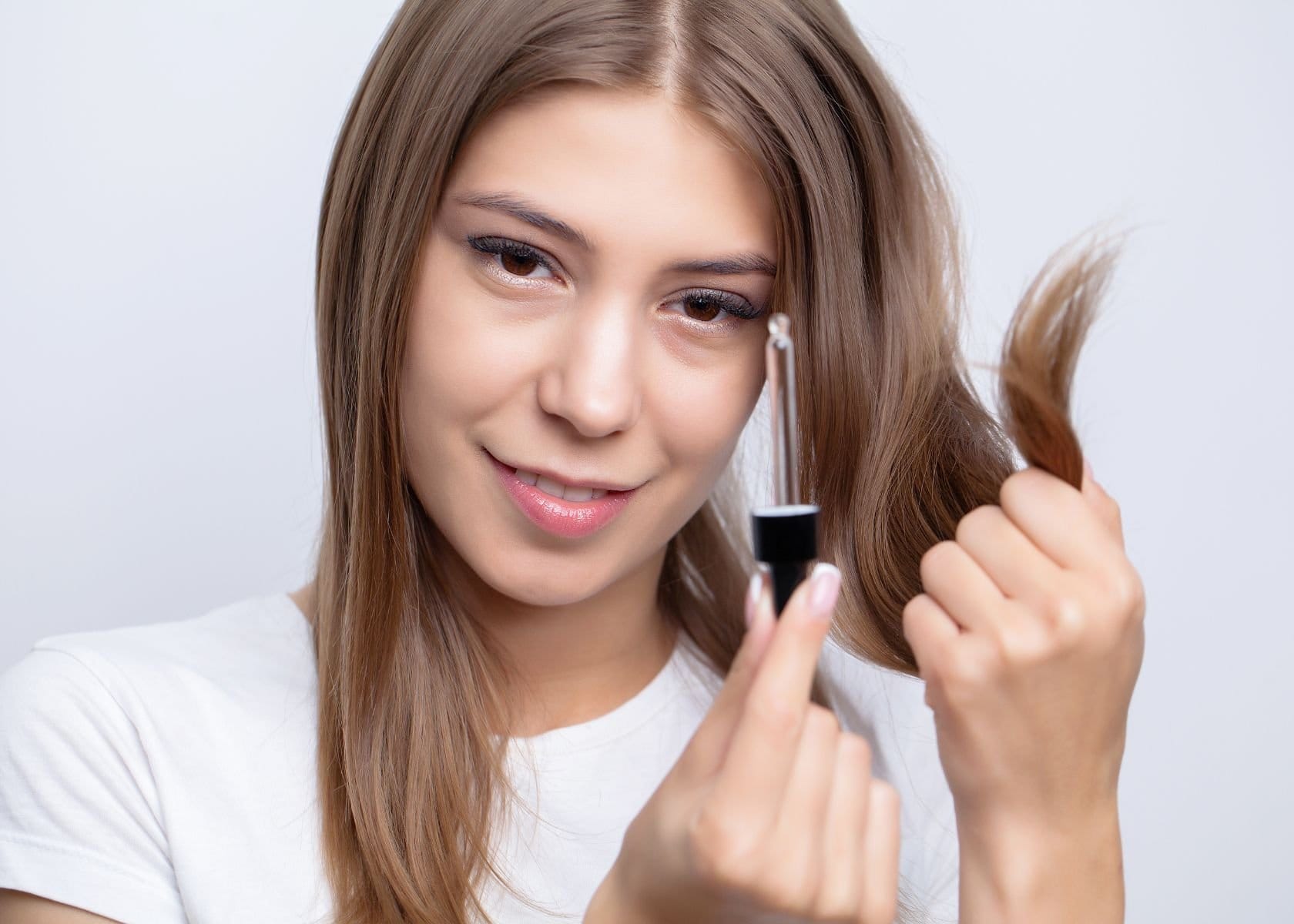
Choosing the right toner formula and limiting toning sessions can help minimize damage to your hair. Using professional toning services can also ensure safe and effective results.
Choosing the Right Toner Formula
Selecting the appropriate toner formula is crucial for achieving the desired hair color without causing damage. Consider opting for a toner that is ammonia-free, as this can help minimize potential harm to sensitized or damaged hair.
It's essential to match the toner with a developer of the correct volume, ensuring that it does not lead to over-processing and subsequent hair breakage. When choosing a toner formula, prioritize options designed specifically for your hair type and coloring needs, such as those formulated for bleached or highlighted hair.
Additionally, look for toners that contain conditioning agents to help maintain the health and integrity of your strands during the coloring process.
When selecting a toner formula, consider consulting with a professional hairstylist who can provide tailored recommendations based on your unique hair characteristics and treatment history.
Limiting Toning Sessions
To maintain healthy hair while using toner, it's essential to limit toning sessions. Overuse of toner can lead to over-processing and damage, causing dryness and breakage. It's crucial to follow the recommended guidelines for application frequency provided by professionals or product manufacturers.
Additionally, giving your hair ample time between each toning session allows it to recover and regain its natural strength.
Moreover, limiting toning sessions helps prevent sensitization of the hair, reducing the risk of potential damage from using certain types of toners. By following a strict schedule for toning treatments, you can ensure that your hair remains in optimal condition without compromising its health and integrity.
Using Professional Toning
Professional toning is essential for maintaining hair health. Selecting a professional-grade toner ensures high-quality ingredients and precise formulations that are less likely to cause damage.
Professional toners also come with detailed instructions for correct application, reducing the risk of over-processing or uneven results on sensitized hair. Additionally, seeking the expertise of a professional colorist can further minimize potential damage by ensuring proper assessment of your hair's condition before applying any toner.
Using professional toning not only minimizes the risk of damage but also enhances the effectiveness of the product in achieving the desired results. Moreover, opting for salon-grade products provides access to ammonia-free options, which are gentler on the hair and contribute to overall hair health.
Demystifying Hair Toner and Hair Loss
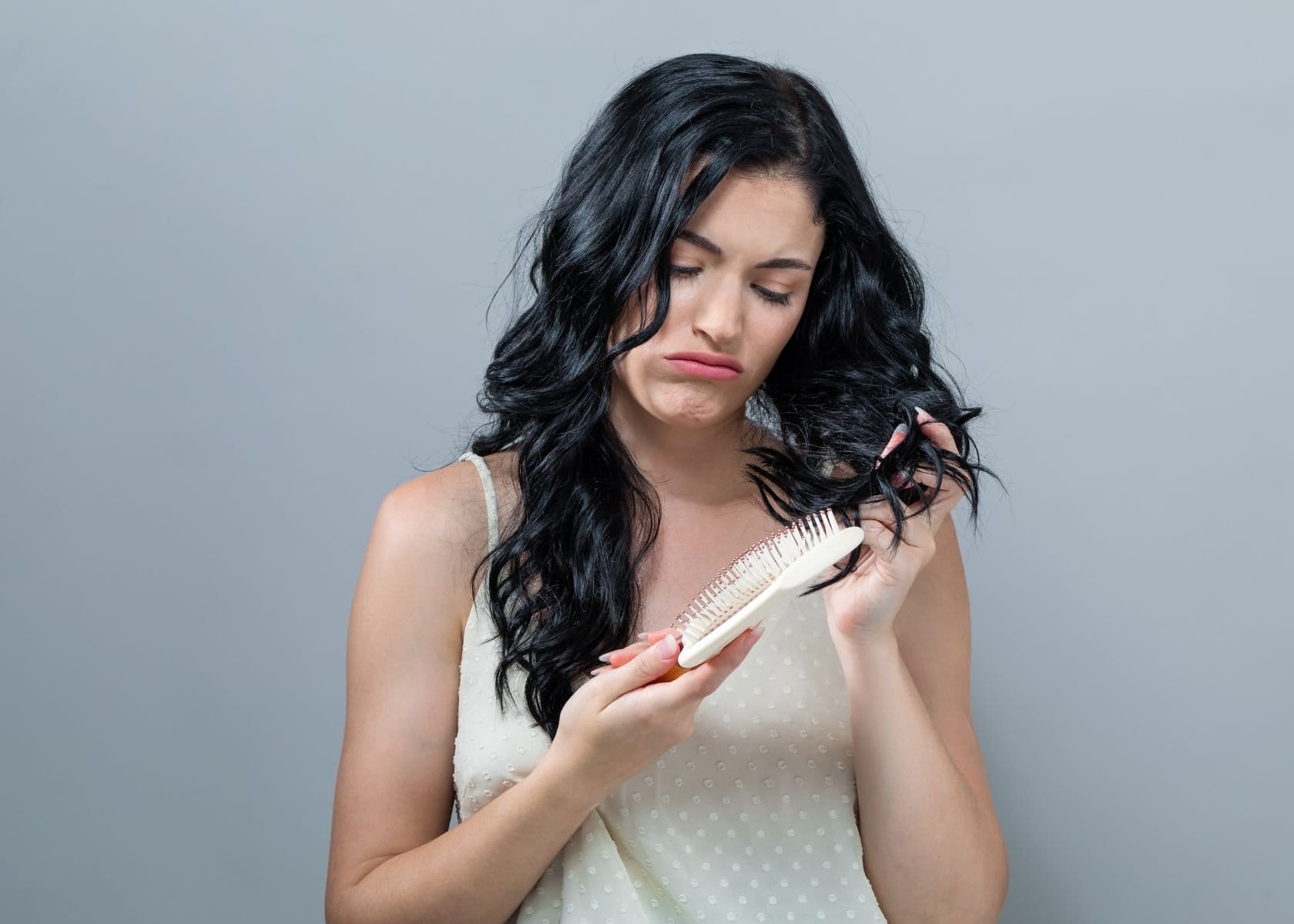
Many people believe that hair toner can cause hair loss, but in reality, there is no scientific evidence to support this claim. Understanding the true effects of hair toner on hair health is essential for making informed decisions about hair care.
Common Myths About Hair Toner and Hair Loss
Contrary to popular belief, using hair toner does not cause hair loss. One common myth is that the chemicals in toner can lead to significant hair fall. However, when used correctly, toner will not make your hair fall out.
Research indicates that properly applied toner does not penetrate the hair shaft deeply enough to cause this type of damage. Another misconception is that frequent use of toner leads to increased hair loss.
In reality, as long as you follow the recommended application guidelines and choose the right formula for your hair type, toner should not contribute to excessive shedding.
The Science Behind Hair Toner and Hair Health
Understanding the science behind hair toner and its impact on hair health is essential for making informed decisions about your hair care routine. The alkaline pH of toners helps to seal the cuticle after bleaching, reducing frizz and enhancing shine.
By depositing color molecules into the hair shaft, toners can neutralize unwanted yellow tones, resulting in a more balanced and vibrant hue. Additionally, some toners contain conditioning agents that contribute to improved manageability and overall hair health.
Research has shown that properly applied toner does not penetrate the hair shaft significantly or cause lasting damage. Instead, when used correctly with the appropriate developer and application time, toner can help maintain healthy-looking strands by enhancing natural hair color vibrancy without compromising structural integrity.
How to Safely Use Hair Toner?
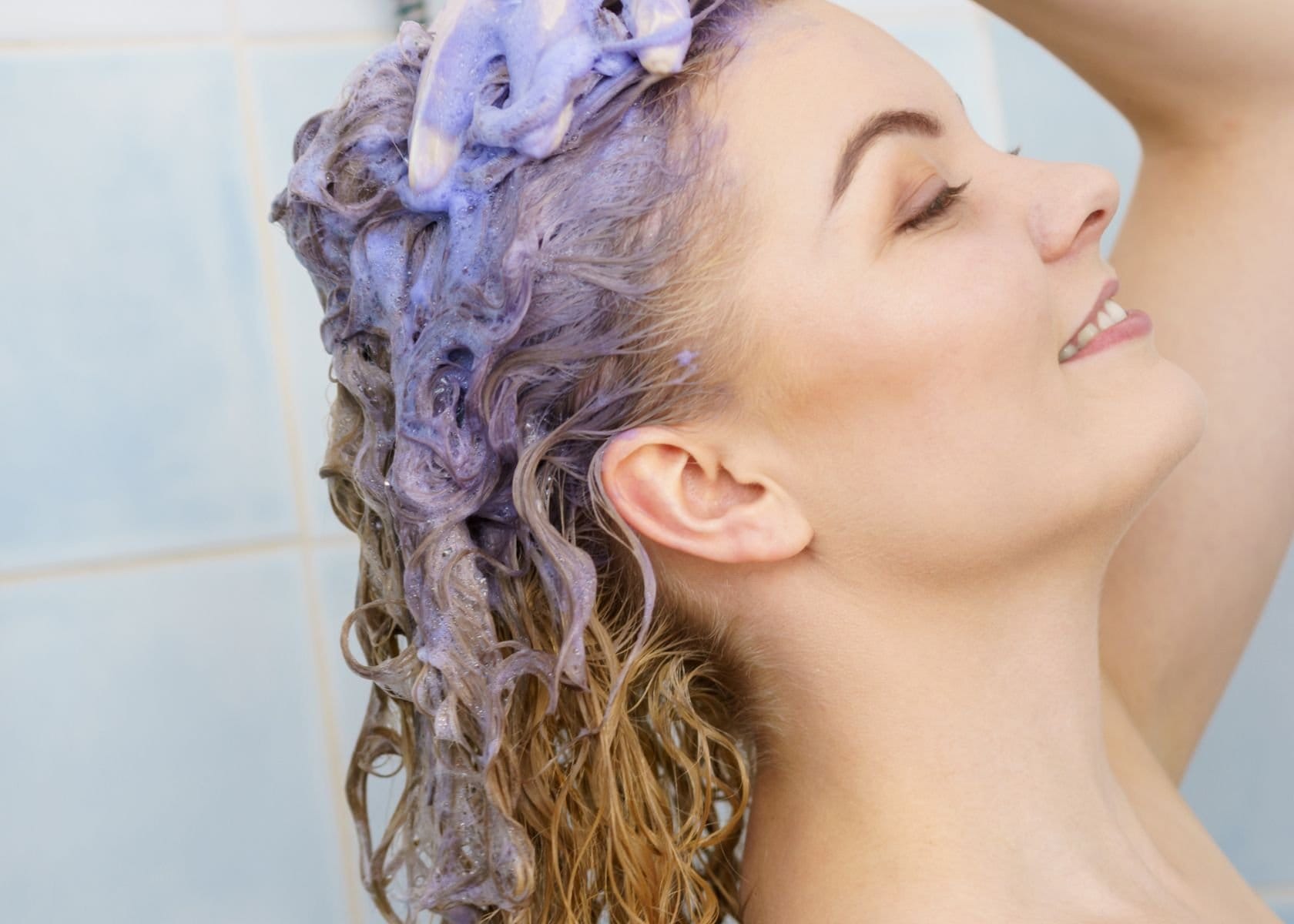
When it comes to safely using hair toner, there are alternatives and preventive measures that can be taken. It's important to understand how to safely use hair toner and the potential risks involved in order to minimize any damage to your hair.
Alternatives and Preventive Measures
To minimize potential damage from hair toner, consider alternatives and preventive measures. You can opt for ammonia-free toner options to reduce the risk of sensitizing your hair and causing damage.
Additionally, using a lower-volume developer when applying toner can help protect your hair from over-processing and prevent dryness and breakage.
Furthermore, limiting the frequency of toning sessions can also be an effective preventive measure. This allows your hair to recover between treatments and reduces the risk of overexposure to chemicals.
Safe Use of Hair Toner
Instead, apply toner with a 20-volume developer and leave it on for a maximum of 20 minutes. Remember to rinse thoroughly after toning and follow up with a post-toning care routine.
This will help prevent hair damage and ensure the safe use of hair toner without causing any significant harm to your hair strands.
Can Toner Make Your Hair Fall Out? - FAQs
Toner is often touted as a gentle way to enhance hair color and add shine between salon visits. However, some people have concerns about whether the chemicals in toner can actually cause hair loss or damage.
If you've ever worried that your favorite purple toning shampoo might be doing more harm than good, these FAQs have the answers you're looking for.
Can using hair toner cause my hair to fall out?
Hair toners alone typically don't cause hair to fall out if used correctly, but improper application or overuse can lead to hair damage and potentially increase the chance of hair loss.
How does hair toner affect my hair after bleaching it?
After bleaching, your hair may be more sensitive, so applying a toner should be done carefully, as it could contribute to further chemical damage if not used properly.
Are ammonia-free hair toners safer for my hair?
Ammonia-free options are generally gentler on your scalp and strands, reducing the risk of damage and sensitization that could lead to breakage or thinning.
What should I do to prevent damage when using a toner on bleached hair?
To prevent potential harm from a toner after bleaching treatments, always follow up with proper hair care, including nourishing treatments, and use products designed for color-treated or damaged strands.
Does frequent application of different types of alcohol-based toners harm your skin?
Yes, frequently using alcohol-based products like purple shampoo can strip oils from the skin, leading to dryness, which may cause irritation. It's essential to balance their use with hydrating skincare items.
Conclusion
Hair toner, when used correctly, does not cause significant damage or make your hair fall out. The strategies and tips provided in this article are practical, efficient, and easy to implement for maintaining healthy hair while using toner.
Understanding the importance of proper application can lead to significant improvements in hair health and appearance. For further guidance on safely using hair toner without causing damage, consider seeking advice from professional hairstylists.
Remember that being mindful of how you use toner will help you achieve the best results for your hair's health and appearance. Share your experience of using hair toners with all of us in the comments below.
Read More About Hair Toners
